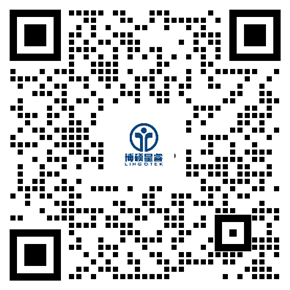口译员如何利用AI为自己增羽添翼?
2024年10月23日 10:01 天津
导语
神经网络机器翻译、生成式AI、大语言模型……科技日新月异,对口笔译员来说,既是挑战,更是机遇。皇家特许语言家学会会员乔治娅·米金斯(Georgia Meakins)近来从英国萨里大学口译专业毕业。作为“数字土著”的她十分看好口译行业在人工智能时代的发展。口译员能如何利用AI为自己增羽添翼呢?就随小编一起听听乔治娅是怎么说的吧。
Over the last few years, the development of AI technology has often been viewed with certain hesitation and wariness by linguists. Some fear that new technologies will leave them behind, or that they will be replaced by machine interpretating engines. Yet, for many “digital natives”, AI tools represent an exciting opportunity to make preparation and live interpreting easier or more engaging. For example, I didn’t have to become accustomed to remote interpreting; my very first interpreting lectures were online because of the pandemic! Personally, I even take the total demonisation of machine interpreting with a pinch of salt. It will make vital communication accessible when using low resource languages, or in situations where human interpreting is unfeasible, such as conflict zones, and will undoubtedly save lives. 近年来,人工智能技术日新月异,语言工作者对此却常持观望、审慎态度。一些人担心自己跟不上新科技的步伐,或被机器口译取代。然而,对于多数“数字土著”而言,人工智能工具带来了振奋人心的契机,让译前准备、现场口译变得更轻松、更有趣。例如,我对远程口译并不陌生,毕竟疫情期间,我的第一堂口译课就在线上!至于那些全然妖魔化机器口译的观点,我更是不完全苟同。对于使用低资源语言的情况,或在人工口译不可行的情况下(如战区),机器口译可以让重要的交流得以实现,甚至可以拯救生命。
In my MA class at the University of Surrey, we focused on “live” AI interpreting aids, looking at specific glossary terminology retrieval or AI boothmates with Automatic Speech Recognition and transcription technologies to help interpreters keep up. Whilst all these incredible technologies deserve their due credit, I would like to give some time to some of the less flashy uses of AI – particularly LLMS – that have been extremely helpful during my studies. First, LLMs are great at reducing the tediousness of glossary building. For example, ChatGPT can instantly extract frequently used terminology from reference texts and, whilst caution is necessary to avoid hallucinations, this is much faster and more practical than manually searching the internet. I also often ask for a short definition to add to my glossary or a detailed explanation of unfamiliar concepts. Furthermore, when presented with parallel translated reference texts, ChatGPT can organise the texts side-by-side to build a small-scale parallel corpus, allowing you to see how terminology is used in context. 在萨里大学的硕士课堂上,我们探讨了“实时”人工智能口译辅助技术是如何辅助口译员的,如特定术语检索、自动语音识别、文本转写技术。这些令人咋舌的技术着实值得我们津津乐道,但我想谈谈那些不太引人注目的人工智能用途——尤其是大语言模型——是如何帮助我学习的。首先,大语言模型极大地减少了构建术语库的繁琐工作。比如,ChatGPT能从参考文献中迅速提取常用术语,比手动上网查要高效、方便得多,当然,操作须谨慎,以免出现“虚假结果”。我也常常让它提供简明释义,或对陌生概念进行详细解释。另外,当你将平行翻译参考文本输入ChatGPT,它能把文本并排排列,生成一个小型平行语料库,展示术语在不同语境中的用法。
I also used AI to create practice speeches for me. Some (many) conference topics are niche, and finding relevant material to practise with is hard for students. But LLMs can provide endless speeches that can be used to familiarise oneself with the forms or style of certain contexts or read aloud by a text-to-speech AI to practise interpreting with. Having tailored practice material helps me calm my nerves enormously; I can ask ChatGPT to write a script for a doctor’s appointment about blood pressure, a conference on biodiversity, a political speech in the style of Rishi Sunak – anything! Clearly, the contents won’t be entirely accurate, but I find that having some indication of what I might face while working is much more useful than just trying to cram terminology into my brain and practising my interpreting skills separately on unrelated training speeches. 我还用人工智能来生成口译练习素材。不少会议主题较为冷门,学生很难找到相关练习材料。但大语言模型就能生成无数演讲内容,帮助我们熟悉特定场景中的用语习惯、风格。文字转语音人工智能可朗读这些材料,用于口译练习。这些定制的练习材料极大地缓解了我的紧张感。我可以让ChatGPT生成一段看医生、验血压的对话、一篇有关生物多样性的会议发言、一则辛伟诚式的演讲——无所不包!当然,生成的内容不可能完全准确,但它们让我对工作时可能出现的场景心中有数,比死记硬背术语、用无关材料练习口译有效得多。
In my career, I will continue to experiment with AI to streamline my workflow and make preparation more enjoyable, and I encourage others to do the same! I look forward to seeing how AI will be implemented in our careers in the future, as, I believe, with sense and critical thinking, it can be an enormously helpful tool for interpreters at all stages of their careers, rather than the threatening beast it is often seen as. 在我的职业生涯中,我将继续尝试使用人工智能来优化工作流程,让译前准备变得更有趣,我也鼓励大家一起尝试!未来,人工智能将在我们的职业中扮演怎样的角色?我对此充满期待,因为我相信,只要口译员理性对待并保持批判性思维,人工智能会成为他们职业生涯各个阶段的强大工具,而非人们常常视为威胁的“妖魔”。
Georgia Meakins MA is a recently graduated English and Spanish-speaking interpreter based in the UK. You can find and follow her on LinkedIn: www.linkedin.com/in/georgia-meakins 乔治娅·米金斯刚取得硕士学位,在英国从事英、西语口译工作。你可以在领英上关注她:www.linkedin.com/in/georgia-meakins。
原文网址:https://www.ciol.org.uk/Optimistic-future-of-interpreters
特别说明:本文内容选自英国皇家特许语言家协会官网,仅供学习交流使用,如有侵权请后台联系小编删除。
添加助教

即可进入本号粉丝群
获取最新资讯
– END –

